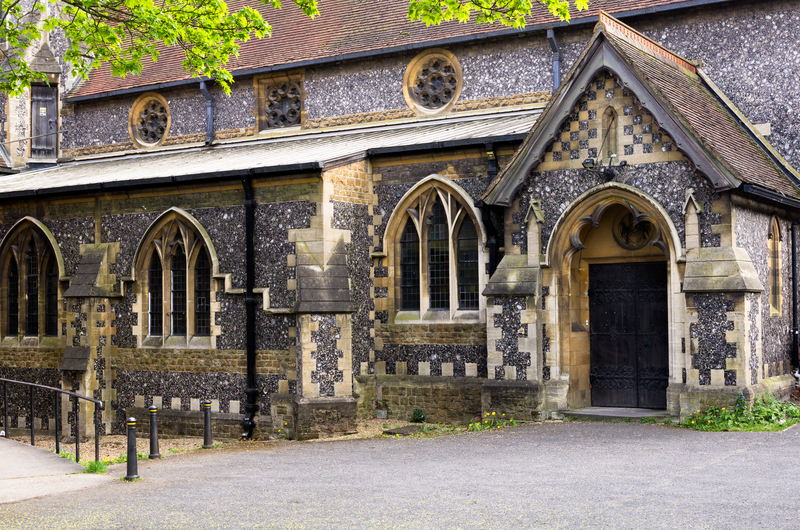Essential Tips for Decluttering Pre-Move
Posted on 25/05/2025
Essential Tips for Decluttering Pre-Move
Moving to a new home can be both exciting and overwhelming. One of the most important steps in ensuring a smooth transition is decluttering before the move. Whether you're relocating across town or across the country, a strategic decluttering approach will save you time, effort, and money. In this in-depth guide, we'll share essential tips for decluttering pre-move that will make your relocation more organized, efficient, and stress-free.
Why Decluttering Before Moving Is Crucial
Decluttering before you move is about more than just reducing your load. It's a valuable opportunity to simplify your life, start fresh in your new home, and avoid the hassle of transporting items you no longer need or use. Here are key benefits:
- Reduces Moving Costs: Less stuff means fewer boxes and lower moving expenses.
- Simplifies Packing & Unpacking: With fewer possessions, organizing and unpacking in your new place becomes easier.
- Boosts Mental Wellbeing: A clutter-free environment can enhance your mood and reduce stress.
With these advantages in mind, let's dive into the essential pre-move decluttering tips that will set you up for success!

1. Start Early: The Golden Rule of Pre-Move Decluttering
The earlier you begin the decluttering process before moving, the better. Give yourself at least four to eight weeks prior to moving day to methodically sort through your belongings, room by room. This avoids rushed decisions and ensures you don't miss anything important.
- Set a decluttering schedule: Create a timeline with specific goals for each week. Stick to your plan for the best results.
- Tackle one area at a time: Don't try to declutter your whole house in a day. Focus on one space--such as closets, kitchen, or garage--and finish it before moving to the next.
2. Gather Reliable Supplies
Being organized from the start will make your pre-move decluttering much easier. Prepare the following supplies before you begin:
- Sturdy boxes and bags for sorting items to keep, donate, sell, or discard.
- Packing tape, markers, and labels to clearly differentiate categories.
- Notepad or mobile app for tracking items and creating an inventory.
Having these essentials on hand will streamline your sorting and help avoid confusion.
3. Use the "Four-Box" Method
The "Four-Box" technique is a timeless system for effective decluttering:
- Keep: Items you use regularly or have significant value.
- Donate: Usable items you no longer need but others could benefit from.
- Sell: Things in good condition that could fetch some cash.
- Trash: Things that are broken, expired, or unusable.
Work through each area with this method, making thoughtful decisions about what accompanies you to your new home.
4. Apply the "One-Year Rule"
If you haven't used an item in the last year, chances are you won't need it in your new place. This rule applies especially to:
- Seasonal clothing
- Holiday decorations
- Kitchen gadgets
- Books and magazines
- Unused electronics
Letting go of seldom-used items will lighten your load and open up space for what truly matters.
5. Sort Room by Room for Maximum Efficiency
To avoid feeling overwhelmed, divide your pre-move decluttering project by room:
Kitchen
- Toss expired foods, mismatched containers, and unused appliances.
- Donate extra cookware, dishes, or duplicate utensils.
Bedrooms and Closets
- Sort clothing into keep, donate, and discard piles using the "one-year" rule.
- Organize shoes, accessories, and linens for evaluation.
Living Room
- Decide if outdated electronics, decor, or furniture merit the move.
- Let go of unread books, old magazines, and unnecessary knick-knacks.
Garage and Storage Spaces
- Dispose of broken tools, unused equipment, and paint cans safely.
- Donate or sell functional items you don't use.
6. Involve the Whole Family
Decluttering before moving is a family project. Involve everyone by assigning age-appropriate tasks. Let children sort their toys and clothes, and encourage teens to declutter their collections. This not only lightens the work but instills lifelong organizational habits.
7. Digitize Where Possible
Physical documents, old photos, CDs, and DVDs take up unnecessary space. Scan important documents and photos, and save digital copies of your favorite media. Shredding and responsibly recycling physical paperwork not only reduces clutter but enhances security.
8. Sell or Donate Unwanted Items Responsibly
Pre-move decluttering offers a unique chance to give back and even earn a little money:
- Sell valuables through online marketplaces (eBay, Facebook Marketplace), garage sales, or consignment shops.
- Donate gently used items to local charities, shelters, or thrift stores. Always check donation guidelines before dropping off goods.
- Recycle or dispose of electronics, hazardous materials, and bulky items at appropriate facilities.
Knowing your unwanted belongings are going to good use or being disposed of responsibly can bring peace of mind.
9. Use Visual Reminders to Stay Motivated
Clutter often causes decision fatigue. Take "before and after" photos of each room to see progress and motivate yourself. You may even print a checklist and physically cross off tasks, which is incredibly satisfying and keeps you on track.
10. Avoid Over-Packing Boxes
As you declutter and pack, remember that overpacked boxes are difficult to carry and more likely to become damaged. Use moderate-sized boxes for heavy items and larger boxes for lighter, bulkier pieces. Label each box with its contents and destination room in your new home.
11. Create a "Do Not Pack" Zone
Set aside an area for essentials that you will need up until or immediately after your move--like paperwork, medications, chargers, and toiletries. Keep these out of the moving truck to avoid accidental packing mishaps.
12. Decluttering Pre-Move: Common Mistakes to Avoid
Even with the best intentions, it's easy to stumble when pre-move decluttering:
- Holding onto "just in case" items: Trust your instincts. Keeping things for hypothetical scenarios can contribute to ongoing clutter.
- Rushing through the process: Start early and pace yourself to avoid hasty decisions you'll regret later.
- Not measuring furniture: Avoid moving furniture that won't fit your new space by double-checking dimensions beforehand.
- Ignoring sentimental clutter: Set aside a "memory box" for truly special keepsakes, but be selective.
13. How to Declutter Sentimental Items
Sentimental belongings--such as heirlooms, gifts, and mementos--are often hardest to part with.
- Keep only what genuinely brings joy or holds significant memories.
- Take photos of items you want to remember but don't have room to keep.
- Offer items to family members who might appreciate or need them.
Remember, memories live in your heart, not in things.
14. Sustainable Decluttering Pre-Move
Being eco-conscious is easy when planning a decluttering project before moving:
- Recycle: Old electronics, batteries, and paper should go to appropriate recycling centers.
- Repurpose: Get creative and give items a new purpose or life whenever possible, like turning worn-out t-shirts into cleaning rags.
- Donate Responsibly: Ensure items are clean and in good condition before donating them to avoid burdening charities with unusable goods.
Prioritizing sustainable practices ensures your pre-move purge is beneficial for both you and the planet.
15. Prepare for Donation Pickups
Many organizations offer free pickups for donations, especially for large furniture and household goods.
- Schedule in advance: Book pickups early to align with your timeline.
- Clearly label donation items to avoid packing confusion.
- Request receipts for tax deductions where applicable.

16. Frequently Asked Questions About Pre-Move Decluttering
How far in advance should I start decluttering before moving?
Ideally, begin decluttering at least one to two months before your moving date to ensure a comprehensive, stress-free process.
What should I do with unwanted items that can't be donated or sold?
Responsibly dispose of items by recycling or taking them to appropriate waste facilities. Some municipalities offer bulk trash pickup services for large or hazardous objects.
How do I help children let go of toys before moving?
Involve kids in decision-making, explain how their toys can benefit others, and celebrate items they choose to donate. Make the process fun by turning it into a game or challenge.
Is hiring a professional organizer worth it before a move?
It can be, especially if you are short on time or overwhelmed. Professional organizers offer expertise, efficiency, and support to streamline your decluttering before the move.
Conclusion: Declutter Before Moving for a Fresh Start
Effective decluttering pre-move is an investment in your new life, reducing stress, moving expenses, and excess baggage--physically and emotionally. By following these expert tips for sorting, evaluating, and responsibly parting with unused items, you'll arrive at your new home organized, lighter, and ready to create a harmonious space from day one.
Start early, stay consistent, and remember: every item you let go of is a step toward a simpler, more joyful life in your new home.
Latest Posts
Essential Tips for Transporting Your Bed and Mattress
Safety Concerns: Why Moving a Piano Isn't a Solo Project
Essential Tips for Safely Storing an Unused Freezer



